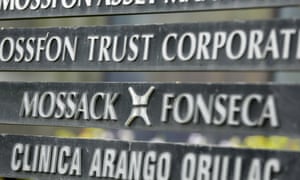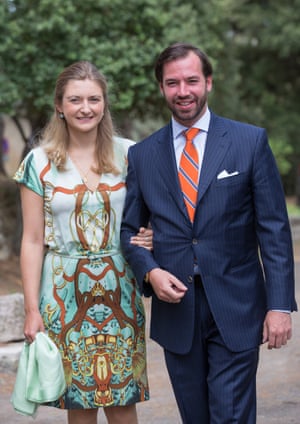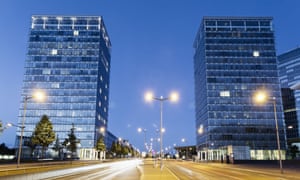Oliver Bullough in The Guardian
Tax havens hate attention. Places such as Jersey, Switzerland and the British Virgin Islands made a handsome living from helping their clients break other countries’ laws for decades, without anyone really noticing. And they liked it that way. Then came the 2007-8 financial crisis, and the good times ended. Rich nations, angry over the loss to their budgets caused by tax dodging, put diplomatic pressure on the havens. Activists, furious over the theft of hundreds of billions of pounds from poor countries, exposed them in the press. The release of vast troves of confidential information – SwissLeaks, the HSBC files, the Panama Papers, the Paradise Papers – cemented a public perception that offshore financial centres exist to help the powerful dodge their obligations to the rest of us, and governments have queued up to punish them. In May, when Britain’s parliament voted to force transparency on its Caribbean islands, it was just the latest blow to the offshore havens.
This concerted campaign has threatened the tax haven business model. Since Swiss banks were forced to open up by the US Department of Justice in 2010, their share of the world’s offshore wealth has dropped from almost half to less than a third. In the British Virgin Islands (BVI), where UK investigators now have access to corporate ownership information, the number of new companies created annually has fallen by more than 50% since 2012. Jersey’s banking sector is barely half the size that it was in 2007.
Although cooperating with outsiders in this way has proven expensive, the havens clearly concluded there was little choice. If denied access to the global financial system, or sanctioned by Brussels or Washington, an offshore centre could be put out of business altogether.
This is good. Tax havens have helped the world’s wealthiest and most powerful keep a disproportionate share of the benefits of globalisation, by preventing the rest of us from seeing how much they own. This, in turn, has eroded trust in democracy and capitalism all over the world. Restricting the operations of tax havens, and enforcing true transparency on the ownership of property, is crucial if citizens are truly to take back control of their countries’ destinies.
Yet, at the heart of this increasingly encouraging picture, there remain a few holdouts – places that have stuck to the old habit of keeping the secrets of the powerful. Foremost among them is Nevis, a solitary volcano in the Caribbean with a population of just 11,000, which has been implicated in some of the most sordid financial scams of modern times, from Britain’s biggest-ever tax fraud to the fleecing of 620,000 vulnerable Americans in a $220m payday loan scam. The story of Nevis reveals the difficulties the world faces in trying to put an end to tax evasion, fraud and kleptocracy.
While Nevis’s rivals have lost business by opening up, Nevis has doubled down on secrecy. Not long ago, I spoke to a lawyer with extensive experience of the island, who asked not to be identified because he still needs to work with Nevisian officials. “The only good thing that Donald Trump could do, if he was ever so inclined,” he said, “is take a battleship and roll it up to Nevis, and literally train the guns and say: ‘Get rid of these bullshit laws or I’ll blow you to kingdom come.’”
In short, he said, “A bright light needs to be shone on this cockroach.”
Tax havens are often lumped together as if they all do the same job. In reality, they are distinctive and highly specialised predators in the financial shark tank. At the top of the food chain – as far as the western world goes, anyway – are places such as London, Switzerland and New York. These apex predators are surrounded by clouds of pilot fish that snap up the scraps: places such as Monaco, Jersey and the Cayman Islands.
These smaller centres all play different aspects of the offshore game: Jersey specialises in trusts, the BVI in incorporation, Liechtenstein in foundations. They also differ in their tolerance for criminality. Among the British territories: Gibraltar is dodgier than Guernsey, but cleaner than Anguilla. And they serve different geographical regions: Mauritius for Africa and India; Cyprus for the former Soviet Union; the Bahamas for the US.
In the world of offshore, Nevis is a bottom-feeder. It specialises in letting its clients create corporations with greater anonymity than almost anywhere else on earth. Last year, information on 70,000 Nevisian companies was leaked as part of the Paradise Papers investigation, but that didn’t help us find out who owns them: ownership information is so secret there that even the island’s own corporate registry doesn’t know. In other words, there was nothing substantial to leak.
“We feel very strongly that people are entitled to some semblance of financial privacy,” the Nevis premier, Mark Brantley, himself an offshore lawyer, told me when we met in his office in January. “Why shouldn’t you be entitled to a secret?”
The secrets don’t belong to residents of Nevis, of course: it would be hard to keep anything quiet for long on an island this size. The secrets belong to foreigners and are being kept from other foreigners, with Nevis getting paid to protect them.
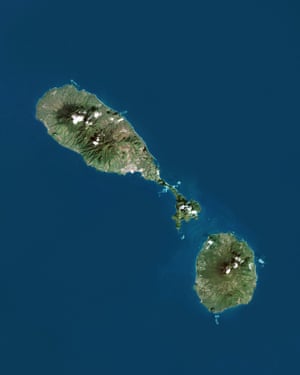
A satellite image of St Kitts and Nevis (the smaller island to the bottom right). Photograph: Planet Observer/UIG/Getty/Universal images
We can see that these secrets exist thanks to the UK’s Land Registry, which releases spreadsheets listing all offshore-owned property in the country, along with the registered address of the company that owns it. Some of the secrets are mundane and could be entirely innocent. For instance, who is behind Shi Li Gao Trustees Ltd, the Nevis-incorporated company that owns 13 Brunswick Gardens, a handsome terrace a short walk from Kensington Palace? Some of them are intriguing: for what reason would a Catholic primary school in Liverpool be held via this little Caribbean volcano? And some are decidedly weird: who on earth decided to structure their ownership of a room in a hotel on Llandudno’s North Parade through Caribbean Establishment LLC?
But all of these questions are impossible to answer since the secrets are sealed away in Nevis. If these properties were owned via a British company, the true owner of that company would have to be declared to Companies House, and would be visible to anyone with access to the internet. If they were owned via a BVI company, that information would be available to the British police. But a Nevisian company is a closed book, and some people really like it that way.
Advertisement
While the BVI has seen the number of companies created there each year collapse, the number created in Nevis has stayed stable. Since 2012, the island’s financial services sector has grown by more than a quarter, as people with secrets have moved to a place that still keeps them. That is a pretty good argument for Brantley’s government not to follow the BVI in opening up its corporate registries to foreigners. Secrecy pays.
“The numbers are relatively small, compared to other financial services industries around, but bear in mind the size of Nevis,” Brantley said. “We get direct revenues of $5m-$5.5m, simply from renewal fees.” Renewal fees are what you pay to maintain your company’s registration; the more companies there are, the more fees you get. “When that is extrapolated outwards – in terms of rental of office space, employment – we recognise that it does have a multiplier effect on the economy.”
It is this provision of secrecy that makes Nevis such an obstacle to law-enforcement investigators. If police can’t prove who owns something, they can’t prove it was criminally acquired, say, or that tax was avoided on the profits from it. This is what crooks are looking for when they send their business offshore. Around 300 British properties are owned in Nevis, and Brantley was unrepentant in defending the secrecy his island provides to those properties’ owners.
“Why should a bureaucrat in London, or wherever, curious about his neighbour’s financial situation, pick up the phone and say, ‘You know what, I need to know if Mr John Smith, who’s my neighbour down the road, has an account or a company in Nevis.’ Why’s that his business?” Brantley asked. “Why are Mr John Smith’s financial affairs any business of a bureaucrat in London, unless there’s an allegation against Mr John Smith that he’s somehow contravening some law somewhere?”
It is an interesting philosophical question, but it is also a major problem. Countries recognise and respect each other’s laws and sovereignty, so Nevis corporations have as much international validity as anyone’s. So, as long as Nevis persists in denying foreigners access to the ownership information of its companies – no matter how hard other places work to open up – scoundrels can keep routing their business via Nevis, breaking the chain of traceable ownership, and hiding themselves and their crimes from discovery. That means crooked politicians, tax dodgers and fraudsters in Ukraine, Nigeria, Malaysia, the US or anywhere else get to mismanage their country’s finances for their own benefit.
And, thanks to Nevis’s curious constitutional situation – it is neither an independent country nor can it be controlled by any other country – there doesn’t appear to be anything we can do about it.
From the sea, Nevis (pronounced “knee-vis”) resembles a green nipple. It is elegantly symmetrical, a tropical volcano ringed with golden beaches. By surface area, it is roughly the same size as Bristol, yet its peak is taller than any mountain in England, so the whole island slopes upwards, starting gently where the beach bars shelter among the palm trees, then steadily steepening, while the tree cover gets denser. If you hike up the peak, you are in true rainforest, and will find yourself scrutinised by monkeys in the overhanging greenery.
It is a gorgeous place, much frequented by famous people. Earlier this week, John Cleese told Newsnight he was so fed up with how Britain is run that he is moving to Nevis for good. “It’s one of the nicest islands I’ve ever been to,” he said. “The children and adults are extraordinarily well-educated, the weather’s good the whole time, I’m very lucky.”
The island was once a major centre for Britain’s sugar growers and slave traders, but it slipped into obscurity in the 18th century, when it was out-competed by larger and more fertile rivals. In the 19th century, Britain added it to neighbouring St Kitts for administrative purposes, and it was as the junior half of the Federation of St Kitts and Nevis that it became independent in 1983.
The 80s were a bonanza period for Caribbean islands, as the global economy opened up and law enforcement was caught flat-footed. Tax evaders and drug dealers from North and South America flew planeloads of dollar bills into places such as Cayman and Anguilla, stashed them in bank accounts owned by untraceable shell companies, then invested them in property in Florida, the south of France or New York.
In 1984, Bill Barnard, an American lawyer who had taken to vacationing on Nevis, asked the island’s premier if he would be interested in getting into the offshore game. Thanks to the almost complete autonomy Nevis enjoys under the federal constitution of St Kitts and Nevis, its first premier, Simeon Daniel, was free to do what he liked. He approved Barnard’s suggestion, passed the incorporation and secrecy laws the American lawyer drafted and awarded Barnard’s company, Morning Star Holdings, the right to act as exclusive agent for creating the companies. It was a win for both of them. (Neither Morning Star Holdings nor Barnard wished to comment for this piece.)
At first, Nevis struggled to compete with already-established rivals, partly because it had no particular advantage of its own. Barnard and his team of American lawyers had borrowed their legislation from Delaware, which acts as a sort of tax haven within the US by offering laxer regulations and lower taxes than the other states, so there wasn’t much reason to look to a remote island for products you could already buy elsewhere. “It was certainly successful,” says David Neufeld, a New Jersey lawyer and an expert on company structuring and international tax. “But it was never at the level of BVI or Cayman.”
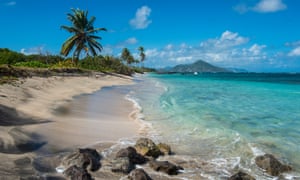
Long Haul Bay, Nevis. Photograph: Michael Runkel/Robert Harding/Getty
Advertisement
When Barnard’s monopoly expired in 1994, Nevis took the opportunity to reboot. Neufeld already worked with Barnard, and was asked to help Nevis diversify its offering. Tax havens are always borrowing ideas from each other, seeking to improve on laws that are proving popular – and this process has led to progressively greater secrecy, fewer taxes and lighter regulations. Neufeld looked to the USnited States for inspiration, and specifically to Wyoming, which had invented the limited liability company (LLC), a useful hybrid structure that allowed people to avoid identification and taxes at the same time, as well as offering other benefits.
LLCs make it hard for your creditors to find your assets, which also helps rich people avoid paying damages if they lose a lawsuit. Your creditors may have a court judgment against you, but if they can’t find your stuff, they will settle for perhaps 50 cents on the dollar to get the legal wrangling over with. Lawyers call this asset protection.
But in the US, it is hard to hide property, since courts can order disclosure of information. Handily, those courts have no jurisdiction in Nevis, which made the idea of a Caribbean version of the LLC very attractive. “In my mind, I was trying to create an LLC for the 51st state,” Neufeld told me. “If you see yourself as someone who could be exposed to some kind of predatory lawsuit where people feel you have assets that are exposed, this gives you an opportunity to protect that.”
In simple terms, Nevis’s laws allow rich people to put ramparts around their property, to protect it from someone who might want to use the courts to take it away, whether that be a business partner, a spouse, an estranged child, or indeed anyone. All tax havens do this, but Nevis turned the ratchet many clicks further than its rivals, in its efforts to tempt business away from its rivals.
To bring legal proceedings on Nevis, you have to file a bond of $100,000 with the court as proof that your case isn’t frivolous. If you win, that is only the beginning of your quest for the assets. Nevis’s regulator holds no information on either the ownership of the company or its assets. Nevis’s LLCs – Neufeld’s innovation – can’t be wound up, meaning you won’t be able to confiscate any assets they own, and you would have to seek redress elsewhere. If you seek to challenge the legality of a property being put in a Nevis-registered trust – for example, if you thought the property actually belonged to you – you have to prove beyond reasonable doubt that the trust’s creation was fraudulent, and you would have to begin that legal challenge within a year of its creation. This is tricky, since Nevis law requires all information on the trust to be confidential, so you would be unlikely to know it even existed.
These ludicrously formidable defences are not really intended to be used, but instead – like the bright colouring of a poisonous tree frog – they exist to warn you off attacking in the first place. If they can persuade a plaintiff to settle out of court for less than is owed, then, for a rich person with vulnerable assets, they are well worth paying for.
“I don’t like the word ‘hidden’,” says Laurie Lawrence, who retired a couple of years ago after two decades as permanent secretary to the Nevis government. “It’s protected, not hidden. There’s nothing to hide. Look at it from the other way: a lot of females are gold-diggers. You are married to a man; you don’t really love him, but he has money. People find ways and means to protect their assets.”
This is perhaps why a wealthy person might want to own a Kensington house (or, indeed, a Llandudno hotel room) via a Nevisian company or other structure: it prevents a divorced spouse, or any other creditor, from accessing that property, without a tortuous legal process. “Nevis structures started coming up about 12 years ago, and they’re coming around with increasing prevalence,” Jeffrey Fisher, one of America’s leading divorce lawyers, told me by telephone from West Palm Beach in Florida.
“I’m a former prosecutor, and I know about the ways people hide money, and what they’ll do,” said Fisher. “My approach to getting assets that are in asset protection entities like a Nevis LLC, is that you don’t go to Nevis and try to get the money out – that is a foolhardy enterprise. They passed laws and they set up structures to stop us and to make it expensive and to make it take years and years and years. What we do here is we use some more creative approaches to, for lack of a better term, make them cough up the dough.”
Fisher’s approach is to target property and bank accounts in the US, to make his opponents’ lives so onerous that they eventually beg to settle – and he’s extremely good at it. The trouble is that anyone who cannot afford to employ highly expensive specialists such as Fisher has no prospect of even finding where their spouse has put their property, let alone wrestling a fair share away from them. They have to accept what they’re given – there’s no court that can help them.
“You’ve got to realise that the asset protection industry is trillions of dollars, not billions of dollars, it’s trillions of dollars,” said Fisher. “Essentially, it’s: we’re going to find a way to screw legitimate creditors out of collecting a legitimate debt. That’s the business these people are in.”
Brantley, the Nevis premier, is fluent and passionate in his defence of the ramparts that Nevis builds for rich people looking to protect their assets from creditors. “All it does is say that you’re creating a locked box, so to speak, if you want to protect assets,” Brantley said, when we met in his office up the hill from Charlestown, Nevis’s capital village. “And people protect assets for a variety of reasons. It’s not always to get away from a pending divorce.”
The trouble is that when you cast your eye beyond the divorce cases, Nevis’s business model begins to looks even worse. The Nevis financial system is rudimentary compared to the large tax havens – places such as Jersey, or the Cayman Islands, which have major accountancy firms, fund managers, large banks and other global behemoths. In Nevis, there’s precious little money for anyone to avoid tax on. But then, it isn’t really a haven from taxes at all, so much as a haven from scrutiny of any kind. The same laws that appeal to the kind of nervous and wealthy men who want to hide their assets from their wives, have been regularly exploited by crooks from all over the world.
Britain’s biggest-ever tax fraud – for which five men were jailed in November, after attempting to scam the Treasury out of £107m in tax – involved Nevis-registered companies, which were helping to hide the identity of the fraudsters. The family of a former president of Taiwan used a Nevis trust to help to hide its ownership of corruptly acquired US property. Ukraine’s deposed president, Viktor Yanukovych, used Nevis structures to hide his stolen assets, as did corrupt Russian officials who stole $230m from the budget in 2007. (When the accountant Sergei Magnitsky uncovered the scam, they arrested him and left him to die in jail.) British trader Navinder Sarao, who pleaded guilty to fraud for helping cause 2010’s flash crash, diverted some of his profits to a Nevis structure called the NAV Sarao Milking Markets Fund.
According to the independent advocacy group Tax Justice Network, Nevis out-obscures all the traditional offshore centres: BVI, Switzerland, Guernsey, the Isle of Man, Luxembourg, and even fellow bottom-feeders such as Belize and the Cook Islands. And its enthusiasm for secrets impedes other countries’ efforts to enforce transparency.
To see how, just look at the UK. In theory, it has always been possible to find out who a British company’s shareholders are, but until recently there was a loophole. If a company was owned offshore, shareholders could preserve their anonymity. To combat this, in 2016, the government brought in a law that requires UK companies to declare the identity of their true owner or owners: any person with significant control (PSC). (Defined thus: “A person of significant control is someone that holds more than 25% of shares or voting rights in a company, has the right to appoint or remove the majority of the board of directors or otherwise exercises significant influence or control.”) This new system is imperfect, not least because Companies House doesn’t check the information provided to it, but it’s a step towards full transparency, and part of the UK’s commitment to stop its companies being used to enable tax dodging and kleptocracy.
But a search of the Companies House website reveals how Nevis is able to defang Britain’s attack on secrecy. For instance, I recently came across three LLPs, all of which are owned by the same two Nevis companies: Tallberg and Uniwell. According to data gathered by the Organised Crime and Corruption Reporting Project, one of these LLPs controlled a Latvian bank account used in a money-laundering scheme; the other two have not been implicated in any wrongdoing (and neither have Tallberg and Uniwell).
According to Companies House, the three LLPs have the same ownership structure, which means that their person or persons with significant control should be the same. Mysteriously, however, each of the LLPs is listed as having a different PSC. This is technically possible, but highly unlikely. But we have no way of finding out the truth, since Nevis does not cooperate with the UK in allowing law enforcement officers to see who really owns Nevisian companies such as Tallberg and Uniwell. These three LLPs are not isolated examples – Tallberg and Uniwell alone have owned dozens of British companies, and there are many more Nevisian corporations like them.
The new UK law requiring disclosure of true owners is useless if that ownership can just be hidden in Nevis. And this is why Nevis-controlled but British-registered companies, whose ownership is unclear, have been involved in many of the massive eastern European money-laundering scams collectively known as the “laundromats”, which have moved tens of billions of dollars out of the former Soviet Union. Nevis ownership can transform a supposedly transparent British company into a secrecy vehicle as iniquitous as anything on earth.
In the words of Jack Blum, a veteran investigator of corruption who has worked for the UN and the US senate: “If somebody finds out that there’s a Nevis corporation involved [in a scam], and they go to Nevis, they could waterboard the entire board of directors and nobody would know anything.”
Charlestown is a handsome place, consisting of a long street of two-storey buildings parallel to the shore, many with first-floor balconies for catching the sea breeze. Its most striking feature, however, is the truly remarkable number of signs advertising lawyers, accountants and administrators. The Devon town of Ilfracombe, with its 11,000 inhabitants, has two lawyers’ offices, an insurance company and two sets of accountants, as well as a branch of Lloyds and a Nationwide. The 11,000 Nevisians, by contrast, host six domestic banks, one international bank, 18 insurance managers, seven international insurance entities, four money service businesses and 58 registered agents, many of them law firms. Nevis may be the most over-lawyered place on earth.
When you get off the ferry, almost the first house you see is the Henville building, nominal home to the Azerbaijan first family’s business empire. If you then turn right at the T-junction, you see the Edith Solomon building (although it has lost two of the letters from its name), which hosted an Idaho payday loan company that was shut down by the state government in 2012, for operating without a license. Barely 100 metres in the opposite direction on Main Street, meanwhile, is the office of Morning Star Holdings, pioneers of the Nevis offshore industry.
I was keen to find the registered address of Tallberg and Uniwell, the two Nevisian companies that had so successfully outmanoeuvred UK company law, in the – admittedly, rather forlorn – hope that I could find someone who would give me information about them. Their registered address was the same as that of the Nevis International Trust Company (NITC), which, according to its website, will supply you not only with a shell company, but also with nominee directors and shareholders, which will further obscure your involvement in it, as well as a bank account, a credit card and a stock trading account. “Nevis is an excellent location for: privacy, estate planning, asset protection, tax reduction planning, holding investments, royalty and licensing ownership,” the website states.
I had an address for the NITC’s office, but no one on the island was able to tell me where it was. I spent a frustrating, hot and thirsty morning searching for it and, when I finally got through on the phone, was brushed off. “I’m not a robber,” I told the woman who answered the phone, after she had refused to help me. “I don’t know that, do I?” she replied.
In fairness, she had a good reason not to talk. According to a 1985 law, anyone on Nevis disclosing financial information without a court order is liable to a prison term of up to a year, as well as a fine of $10,000. (This is another area where Nevis is resisting the trend towards openness. Cayman previously had a similar law against breaching confidentiality, but decriminalised the offence in 2016.)
When I tried phoning the registered office of Tallberg and Uniwell, the receptionist refused to even tell me where the office was, so I couldn’t visit. When I emailed the NITC, there was no reply. Eventually I had to accept that it was not going to be possible to make contact with them, which meant the true ownership information for the three LLPs was undiscoverable.

Nevis, looking up at the volcano. Photograph: Marka/Getty
And it is not just journalists who are unable to check the reliability of Nevis’ financial information for themselves; foreign police can’t either. That means we are all reliant on the Nevis financial services regulatory commission to do it for us. The commission is based in an office in the centre of Charlestown, and is run by Heidi-Lynn Sutton, its chief regulator, who works in an office on the first floor.
Sutton started off unfriendly, and became less friendly as our 45-minute chat progressed, her manner becoming increasingly exasperated. She flatly dismissed the US state department’s description of Nevis as “a desirable location for criminals to conceal proceeds”. It was simply untrue, she said, that Nevis had anonymous bank accounts, bank secrecy and an opaque corporate register.
This was odd, since her regulator’s own website states that bank account holders on the island have no obligation to provide any “statement, return or information (to) … the regulator or the minister”. However, Sutton defended Nevis against all allegations, no matter how serious. The heavy cost of bringing proceedings in Nevis court, for example, was simply to protect the justice system from being “bombarded with frivolous lawsuits”, rather than to protect the wealthy. “That is our weeding-out mechanism,” she said. “Some countries are very litigious. If you get a little burn on your hand because you spill a McDonald’s coffee, somebody will sue you.”
When I explained the difficulty I had faced in even finding NITC, Sutton laughed, asking why I was looking for it. I explained that I had hoped to discover who actually owned the limited partnerships on the British registry. When I asked about whether the regulator she runs might have failed to notice a number of serious money-laundering schemes, she simply said: “I can’t speak to that, I really cannot speak to that.”
What about the fact that the former ruling families of Taiwan and Ukraine, as well as lower-profile crooks from all over the world, had used Nevis vehicles to obscure the ownership of their stolen assets? Sutton laughed again. “I can’t accept that there has been multiple usage of our structures to facilitate whatever. I can’t accept hearing it from you. I won’t be able to speak to that.”
If the island is so clean, why did online trolls looking to smear Emmanuel Macron before the 2017 French presidential election create fake documents supposedly showing he had a shell company in Nevis? Isn’t that a sign that the industry Sutton oversees has an image problem? “People make things up all the time,” she replied. “Once you are an international financial centre, and provide certain services, you will always be a target, it doesn’t mean that it’s true.”
I have spent most of the last four years researching financial crimes, and have spoken to dozens of regulators and investigators in multiple jurisdictions, but never before had I met one who responded in such a way to allegations of grand corruption, money laundering and fraud that I was making against their jurisdiction.
Like any financial centre, Nevis must choose between turning away dirty money, or attracting as much business as it can. I did not find my visit to Nevis reassuring.
Since Nevisian officials appear happy with the current situation, it is up to outsiders to force change on the island, and sadly – thanks to the constitutional peculiarities of the federation – this is all but impossible. We know this because it has been tried.
In 1995, in federation-wide elections, the St Kitts and Nevis Labour party swept to power with seven of the 11 federal seats, and its leader, Denzil Douglas, became prime minister. He had no seats on Nevis, but did not need any to pass laws for the whole federation. Among his priorities was restricting Nevis’ sordid financial sector. “We were aware that the international community had begun to frown upon Nevis, and on the international financial services that were poorly regulated, not supervised, etc,” said Douglas when we met in his office in Basseterre, the federal capital, which is on St Kitts. “And we sought to bring in new legislation. So they had their referendum.”
The federal constitution allows Nevis to hold a referendum on secession whenever it wants to, and so, in 1998, annoyed by Douglas’s attempt to rein in its lawyers, it did. And 62% of Nevisians voted to break free of their neighbours, which was not quite enough to reach the two-thirds super-majority that the constitution demanded, but enough to make Douglas and his government back down. “The government has no choice,” Douglas said, “because we’ve tried.”
In 2000, the Financial Action Task Force – a Paris-based group created by the G7 to develop policies against money-laundering – blacklisted the whole of St Kitts and Nevis, as one of 15 countries deemed to be non-cooperative. That forced Nevis to agree to federal legislation, but did not change the basic dynamic that it has significantly more autonomy than Scotland has within the UK, and in some ways more than individual US states. One financial professional in Basseterre described the relationship between Nevis and St Kitts as like that of a teenager with access to his big brother’s credit card.
Even if Premier Brantley were not ideologically committed to selling privacy to wealthy foreigners, his government’s statistics provide plenty of reasons for him to favour maintaining the country’s opaque company-registration system on purely pragmatic grounds. Fees from incorporating companies and renewing their registration made up more than 16% of Nevis’s government revenue in 2015, up from less than 12% in 2014.
None of the tools that large countries have used against tax havens such as Switzerland or Jersey – diplomatic pressure, legal proceedings against banks, and so on – are applicable to Nevis. It is part of a fully independent country (unlike the BVI or Gibraltar) and the companies providing its services (unlike the Swiss banks targeted by the US Department of Justice) are not large enough to fear losing their offices in the US.
Major western countries will have to make their criticism of Nevis via diplomatic channels, if they want it to change its ways. Brantley got his retaliation in first, however, accusing the British government of hypocrisy.
“It is no secret that the UK, and London in particular, has a disproportionate number of wealthy Russians, for example, and wealthy oligarchs from all around the world, and the question is: why? It can’t be for the weather. So, why are people flocking to London? So, if the United Kingdom can do that, then what is the issue with other countries, not as endowed as the UK, trying to stand on their own two feet?”
The issue is that if every jurisdiction thinks only of how to stand on its own two feet – whether that’s post-Brexit Britain, Nevis or Wyoming – we will all be pushed over separately by the world’s crooks and thieves. Brantley is right that we all need to do more to fight kleptocrats and fraudsters, but by keeping their secrets and making money from it, Nevis is stopping the rest of us from moving forward.





